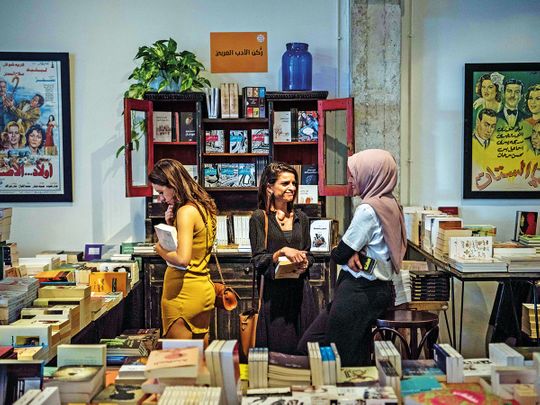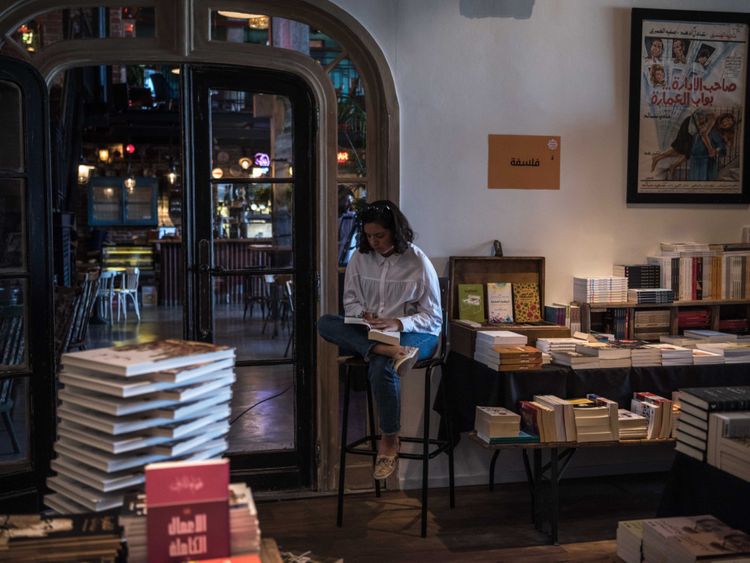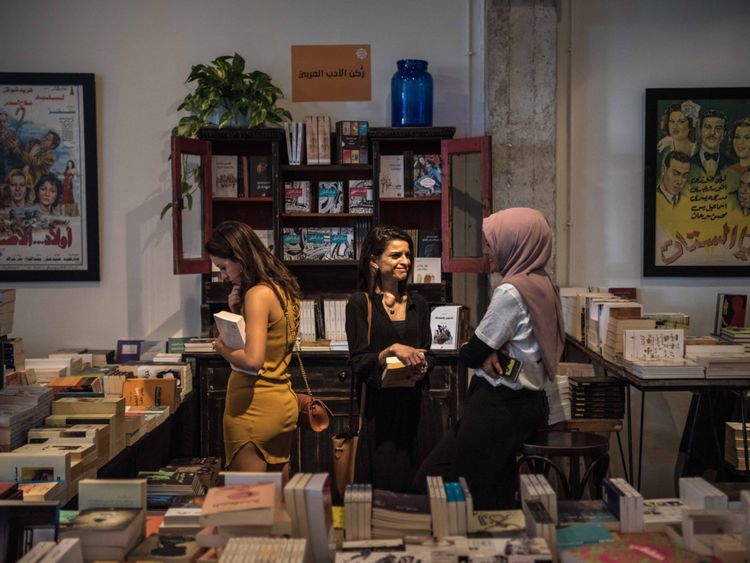
Occupied Jerusalem - For three years now, Asma Azaizeh has run a popular Arabic-language book festival in Haifa, a mixed city that has become a vibrant culinary and cultural capital for Palestinian of the 1948 areas.
But as this year’s festival opened on Friday, it was being held without hundreds of titles Azaizeh wanted to showcase. The Israeli occupation regime’s border officials barred them from being imported from Jordan, under an 80-year-old law that predates the existence of the state of Israel.
Arabic translations of George Orwell, James Joyce and William Faulkner; of Sylvia Plath, Susan Sontag and Nelson Mandela; of Shakespeare, D.H. Lawrence, Orhan Pamuk, and Agatha Christie were all rejected and sent back to a Jordanian distributor.
So, too, were novels by Ala’a Al Aswany and the late Naguib Mahfouz, of Egypt; “Men in the Sun,” by Palestinian author and political activist Gassan Kanafani, who was killed by Israel in 1972; “Cities of Salt,” by Abdul Rahman Munif, the Saudi Arabian novelist; and “Out of Place”, the autobiography of the late Edward Said, the Palestinian-American scholar.
The reason? The books were printed in Beirut.
An Israeli law that dates back to the Second World War-era British Mandatory Palestine forbids trading with the enemy, and Israel applies that policy to Lebanese, Syrian and Iraqi publishers, among others.
The books’ content is not the issue, Azaizeh said. Only the location of the publisher - despite the fact that she was purchasing the books from a company in Jordan, with which Israel does have a peace treaty and trade relations.
Lebanon doesn’t import Israeli products either, of course: The countries, which have repeatedly gone to war, have no diplomatic relations.
But Israel’s policy, Azaizeh said, has severely impaired the ability of Palestinian citizens of Israel to keep up with culture in the West, through translations, or to maintain much of a literary or intellectual connection to the wider Arab world.
“If I talk to a man or woman my age from Syria or Egypt, I see the difference,” Azaizeh said. “We were taught differently. We read different books.” And until martial law was lifted in 1966, she said, “Israel decided what to publish in Arabic. They decided what Arabs should read.”
The library she went to as a youngster, she said, “stops in the Soviet Union, because the intellectuals were part of the Communist Party. So you see Dostoyevsky, Lenin and Marx. The whole library is so yellow. There’s nothing new there.”
Azaizeh said she started the book festival at Fattoush, a cavernous restaurant, bar and performance space in Haifa, in 2017 because she had been bringing books into Israel from Jordan and Egypt herself, but realized that many Arab citizens lacked a way to gain access to important or popular literature, poetry and nonfiction without traveling.
“People don’t feel this, because they’re not used to having good books,” she said. “If you deprive society of something for long enough, they will not feel the loss.”
Israel applies the same ban on importing books from “enemy states” in its occupation of the occupied West Bank, said Sawsan Zaher, a lawyer and deputy director-general at Adalah, the legal cente for Palestinian rights in Israel.
A decade ago, Adalah represented a Haifa bookseller who had been importing books from Lebanese and other forbidden publishers under a special Israeli licence - until the state abruptly cancelled it. But when Adalah sued, the state resumed giving the bookseller his license, and the lawsuit was dismissed, short-circuiting any chance of overturning the policy, Zaher said.
The import ban is particularly crippling for Israel’s Arab readers because both Beirut and Damascus, at least before the Syrian civil war, were long known as the publishing capitals of the Arab world, Zaher said. Books by Arab-Israeli authors are readily available to Arab citizens of Israel, “but they’re interested to read the books that everyone is talking about, the bestsellers in the Arab region,” she said.
“You’re hungry for the culture you know you’re part of, but you cannot access it,” Zaher said.
In Israel and the West Bank, at least, booksellers say that enforcement of the import ban often depends on the mood of the border officer who examines a shipment. Israel’s Ministry of Finance, which are responsible for enforcing the trade restrictions, did not respond to requests for comment.
Arab readers and booksellers in Israel can often find ways to bypass the restrictions, at least with small quantities, Azaizeh said. Book distributors in Jordan ask Lebanese publishers to leave geographic-origin information off their shipping labels. And book-loving travellers have long learned, when packing their bags, to bury titles printed in forbidden countries under books published in Egypt, Jordan or other countries that trade with Israel.
Many people also download books, but e-readers are not yet in wide use among Palestinian citizens of Israel. Amazon’s Kindle devices only started supporting Arabic in 2018.













